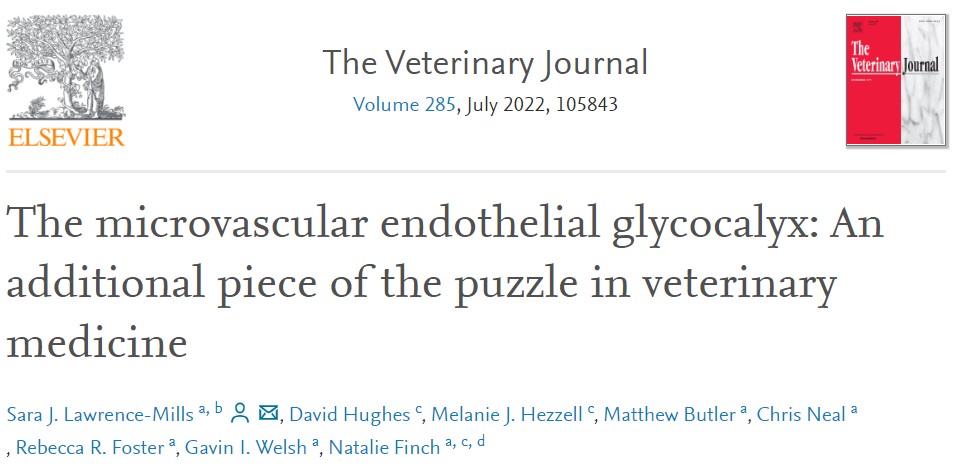
BioRegenx Announces Endothelial Glycocalyx Veterinary Study of Dogs and Cats Using the Testing Device GlycoCheck
CHATTANOOGA, TENNESSEE, USA, September 28, 2022 – Microvascular Health Solutions, LLC (MVHS), a BioRegenx subsidiary based in Alpine, Utah, announces that a new peer-reviewed study has been published using GlycoCheck, a medical testing device, exclusively distributed worldwide by MVHS. The study, titled The microvascular endothelial glycocalyx: An additional piece of the puzzle in veterinary medicine, looked at the role of the endothelial glycocalyx in dogs and cats. The study was published by the The Veterinary Journal, and it was authored by researchers at the Bristol Veterinary School, University of Bristol, Bristol, UK.
The research was conducted to understand glycocalyx degradation in disease in dogs and cats. In the study, the researchers noted that “We highlight the lack of studies regarding the eGlx [endothelial glycocalyx] in cats and dogs, particularly in naturally occurring diseases. Importantly, we discuss techniques to aid its study, which can be applied to veterinary species.”
The authors conclude that “The eGlx [endothelial glycocalyx] is a dynamic and fascinating structure with a critical role in health and disease. Composed of proteoglycans, glycoproteins, and soluble plasma proteins its composition is integrally linked to its function in regulating vascular permeability, endothelial cell interactions and mechanotransduction. Study of the eGlx is challenging. However, we have presented techniques in this review that are suited to veterinary clinical patients such as indirect measurement of eGlx components using ELISAs. In humans, there is much emerging evidence that eGlx damage prevents its normal function in maintaining vascular homeostasis and contributes to the pathophysiology and progression of many diseases. In veterinary species, research is in its infancy, although early studies have suggested eGlx degradation plays a role in naturally occurring disease in dogs. Research in veterinary species should initially focus on demonstrating the presence of eGlx damage in disease, and validating the tools necessary for its study, prior to evaluating potential therapeutics.”
About BioRegenx
BioRegenx, Inc., (BioRegenx.com) is a holding company with four subsidiaries, Microvascular Health Solutions, LLC, MyBodyRx, LLC, NuLife Sciences, Inc. and Regenr8, Inc. BioRegenx was created to integrate leading-edge companies into one synergistic platform offering 360-degree solutions, which include leading edge testing technologies and nutraceutical solutions. Testing technologies include the breakthrough GlycoCheck™, developed by GlycoCheck, B.V. and exclusively distributed by Microvascular Health Solutions, and TruEpigentics DNA and epigenetic testing. Nutraceuticals include the patented Endocalyx Pro™ and additional synergistic dietary supplements sold under the MyBodyRx brand. The customer base of BioRegenx subsidiaries includes medical professionals, brand partners, and consumers from throughout North America.
Safe Harbor
This press release contains forward-looking information within the meaning of Section 21E of the Securities Exchange Act of 1934, as amended (the “Exchange Act”), including statements regarding potential sales, the success of the company’s business, as well as statements that include the word believe or similar expressions. Such forward-looking statements involve known and unknown risks, uncertainties, and other factors that may cause the actual results, performance, or achievements of BioRegenx, Inc. to differ materially from those implied or expressed by such forward-looking statements. This press release speaks as of the date first set forth above, and BioRegenx, Inc. assumes no responsibility to update the information included herein for events occurring after the date hereof. Actual results could differ materially from those anticipated due to factors such as the lack of capital, timely development of products, inability to deliver products when ordered, inability of potential customers to pay for ordered products, and political and economic risks inherent in international trade.

